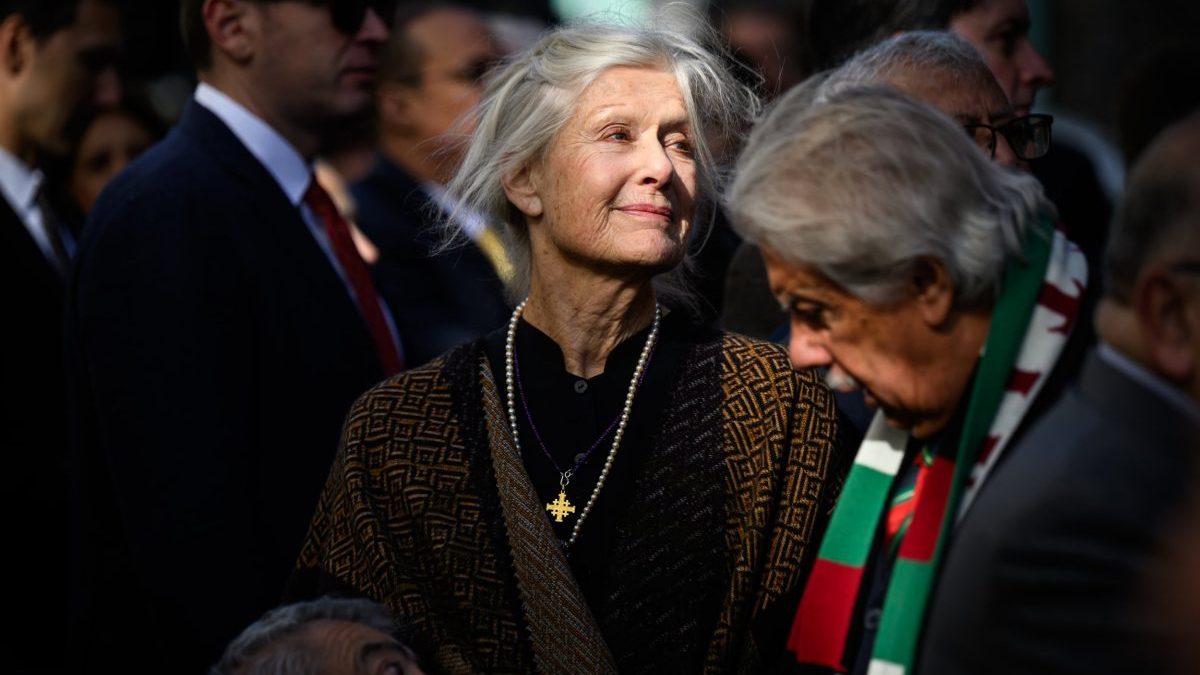
Every diplomat knows there is a menu of options if the Government chooses to enact them
This felt like a moment. The spontaneous applause from a couple of hundred guests and supporters cheerfully packed into the narrow Hammersmith side street that is home to the Palestinian mission to the UK, as the familiar green, black, white and red national flag was raised alongside it.
The eloquent speech by Husam Zomlot, the head of mission, started with his brandishing a plaque that should, he said – once the “bureaucratic” formalities have been completed – be affixed to the wall proclaiming it as a full embassy.
He went on to quote the revered poet Mahmoud Darwish apostrophising as a woman the land that “was called Palestine/ and she is still called Palestine/ My Lady, because you are my Lady, I deserve life.”
Flanked by the Middle East minister, Hamish Falconer, Zomlot did not shrink from calling Israel’s onslaught on his native Gaza a genocide. And in warmly welcoming recognition, he referred back to the 1917 Balfour Declaration identifying the land as a “national home for the Jewish people” and more than a century of dispossession and “erasure” of Palestinians since then. Was it now, you wondered, that Britain was finally beginning to make good the unfulfilled promise in the Declaration that “nothing shall be done which may prejudice the civil and religious rights of existing non-Jewish [i.e Arab] communities in Palestine”?
Up to a point. On one level, it’s surprising that Benjamin Netanyahu’s ministers have reacted with such ferocity to the decisions by the British and other governments to recognise a Palestinian state that does not yet exist. For they, like Zomlot and his fellow countrymen, know that on its own it will neither stop the war in Gaza nor arrest the now unprecedentedly rapid and often violent expansion of illegal Israeli settlements in the West Bank.
All those governments retain their professed belief in two states, Israel and a Palestine, comprising of the occupied West Bank, East Jerusalem and, yes, Gaza, living side by side, one in which they insist Hamas will have no governing role.
So are they now prepared, as the logic of recognising statehood dictates they should, to enact some of the sanctions available in response to the killing of more than 65,000 Gazans, mostly civilians, and exponentially out of all proportion to the murderous attack by Hamas on October 7, 2023?
And secondly, to enact those sanctions available in response to the ever-deepening entrenchment of a 58-year-old occupation designed precisely to prevent a Palestinian state ever coming into being?
For every diplomat knows there is a menu of such options if they choose to do so. In relation to Gaza, governments could, in consort, consider a boycott of trading, cultural, academic and sporting links with Israel, and sanctions similar to those enacted against Russia over its invasion of Ukraine.
This would not in any way be permanent, but would be maintained only until Netanyahu agrees to a ceasefire that would end the war and bring back the 48 Israeli hostages still held in Gaza.
The Government could enact a sweeping embargo of arms sales and military co-operation with the same conditions, leaving the US (for now) as Israel’s sole – if admittedly easily the biggest – military patron until the war in Gaza ends.
In relation to the wider occupation, notably in the West Bank, there is a legal as well as a logical imperative to do far more. Although technically advisory, the July 2024 decision by the International Court of Justice not only ruled that the occupation was illegal but conferred on third states the obligation not to assist it.
One start to enacting the ruling would be to ban the trading of goods and services from the settlements, along with investments and charitable donations to them from the countries concerned, including the UK.
Britain and the EU member states, among the recognising countries, could also suspend, at least until there is a settlement freeze, their trade agreements with Israel on the grounds that Netanyahu’s Government is violating the human rights clauses in those agreements.
Yvette Cooper is no doubt right to have warned Israel against retaliation by formally annexing even parts of the occupied West Bank, as Netanyahu’s most ultra-right ministers are insisting he should. But it is a fantasy to think that ministers like the messianist Itamar Ben Gvir and Bezalel Smotrich would not be pursuing such a goal even if there had been no recognition.
And secondly, whether there is such formal de jure annexation, de facto annexation is what is already happening in the West Bank, thanks to relentless settlement expansion and displacement of its Palestinian residents.
The worst possible outcome would be merely to enrage Israel’s Government, the most extreme right-wing one in its history, by the essentially abstract act of recognising Palestine while not taking the steps that can begin to alter the destructive – and self-destructive course – on which Israel has embarked.
Recognition is a welcome step, rightly celebrated in Hammersmith on Monday. But it is – or should be – only a beginning.
